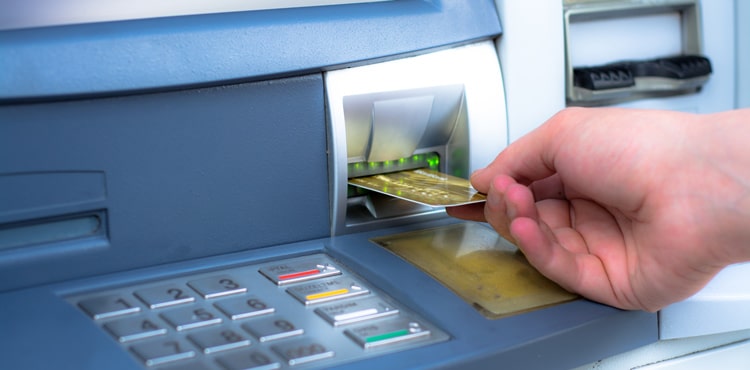
A TD Bank overdraft fee lawsuit may be an option for individuals who were charged multiple overdraft and/or insufficient funds fees for debit card purchases, ATM withdrawals or other debit card transactions. TD Bank account holders who were wrongfully charged an overdraft fee or an insufficient funds fee due to potential deceptive practices of the financial institution may be able to pursue a claim with the help of an overdraft fee lawsuit attorney.
For more information, contact Attorney Group today. Our consultations are free, confidential and without any obligation on your part. We can help answer your questions, and if you choose to pursue a claim we can connect you with an affiliated overdraft fee lawsuit attorney who can assist you throughout the legal process.
Improper Overdraft Fee Practices
TD Bank, N.A., is an American national bank and subsidiary of Toronto-Dominion Bank, a Canadian multinational bank based in Toronto, Ontario. TD Bank has branches and operations on the East Coast and is reportedly the eighth largest bank in the United States by total assets.
TD Bank, in addition to other banks and credit unions, has allegedly engaged in improper overdraft fee practices. Improper practices often used by these institutions include charging customers for non-recurring transactions, early fee extraction or authorization holds, extended overdraft fees, unauthorized overdraft protection, and irregular deposits.
Additionally, some banks and credit unions have allegedly reordered an account holder’s transactions so that the largest amounts are processed first rather than chronologically. Reordering transactions in this way can potentially lead to excess overdraft fees.
Overdraft fees can pile up, often without the checking account customer realizing it. Checking account customers who have been wrongfully charged an overdraft fee or an insufficient funds fee may be able to file a claim and pursue compensation after TD Bank improperly charged them for overdrawing their account.
What are Overdraft Fees?
An overdraft occurs when a bank account holder doesn’t have enough money in their bank account to cover a transaction, but the bank pays for the transaction anyway. Bank account holders can overdraw on their accounts through written checks, ATM transactions, debit card purchases, automatic bill payments, and electronic or in-person withdrawals.
Many banks, credit unions or other financial institutions offer overdraft protection programs and then charge an “overdraft fee” when the account is overdrawn. Each institution sets its own fee, and in most cases, fees average around $35. Some banking institutions also charge an additional amount per day for every day an account is overdrawn.
“Opting-In” to Overdraft Fee Protection
Before a bank or credit union can charge an overdraft fee, federal law states that checking account holders must “opt-in” and agree to overdraft protection. The Consumer Financial Protection Bureau (CFPB), a government agency responsible for consumer protection in the financial sector, found that checking account holders who opt-in to overdraft fee protection often pay more in overdraft fees than people who do not. In fact, according to a study conducted by the CFPB, bank account holders who frequently attempt to overdraw their checking accounts “typically pay almost $450 more in fees if they opted in to debit card and ATM overdraft coverage.
If a bank account holder chooses to opt in to debit card and ATM overdraft, they are usually allowed to make ATM withdrawals and debit card purchases even if they do not have enough funds at the time of the transaction. The agency notes that overdraft and bounced check fees “constitute the biggest single cost for consumers of owning a checking account” and estimates that Americans paid approximately $15 billion in overdraft fees in 2016.
How a TD Bank Overdraft Fee Lawsuit Can Help
When a company engages in false or abusive business practices, or otherwise commits deceptive trade practices, that company could be liable for any damage that may result.
The actions of the defendants could constitute fraud and misrepresentation, breach of contract as well as violations of various state and local consumer protection laws.
Compensation may be sought for:
- Refund of fees and costs previously paid
- Damages related to violations of consumer protection acts
- Attorneys’ fees
Consumers with TD Bank checking accounts who have been charged multiple overdraft or insufficient funds fees may be eligible to pursue damages. Those bank account holders are encouraged to seek the advice of an experienced overdraft fee lawsuit attorney to learn more about their rights and remedies.
The Time You Have to Pursue a Claim is Limited. Contact Us Today.
For more information, contact Attorney Group. You can fill out the form on this page or contact us by phone or email.
After you contact us, an attorney will follow up to answer questions that you might have. There is no cost or obligation to speak with us, and any information you provide will be kept confidential.
Please note that the law limits the time you have to pursue a claim or file a lawsuit for an injury. If you think you have a case, you should not delay taking action.





